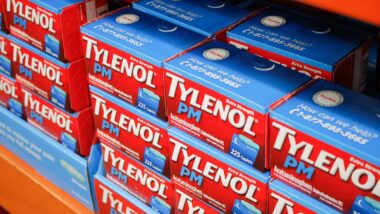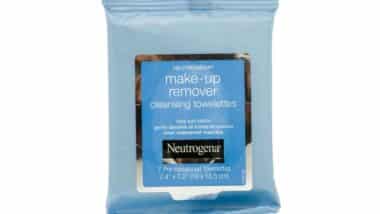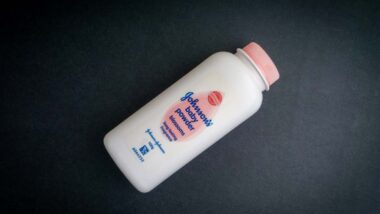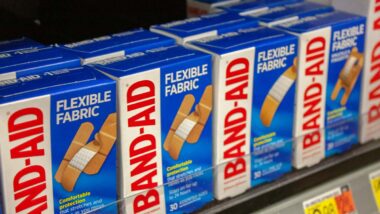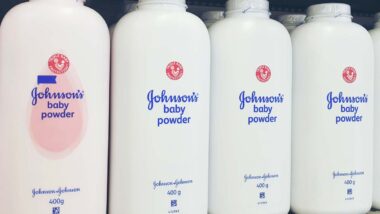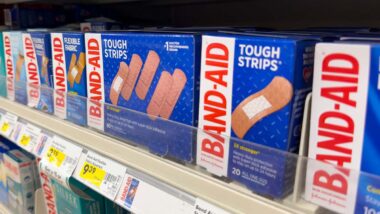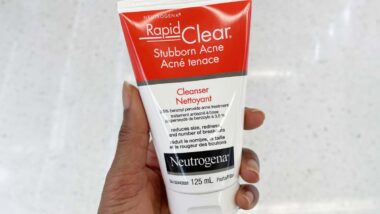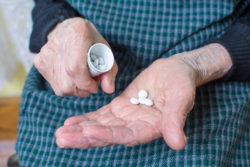 A man has filed a claim against the manufacturers of Invokana medicine on behalf of his loved one who allegedly developed diabetic ketoacidosis and acute kidney injury from the type-2 diabetes drug.
A man has filed a claim against the manufacturers of Invokana medicine on behalf of his loved one who allegedly developed diabetic ketoacidosis and acute kidney injury from the type-2 diabetes drug.
Plaintiff Steven G. filed his Invokana medicine lawsuit in New Jersey federal court as part of an increasing multidistrict litigation (MDL) currently in progress against Johnson & Johnson and the company’s subsidiary, Janssen Pharmaceuticals.
Steven is suing on behalf of the estate of Jeffrey G. He alleges that the defective and unreasonably dangerous Invokana medicine caused Jeffrey to develop diabetic ketoacidosis and acute kidney injury. He also alleges that due to the improper disclosure of risks with Invokana, Jeffrey developed these serious adverse effects and complications.
Jeffrey began taking the Invokana medicine in 2015 after discussing several treatment options with his medical provider. Jeffrey was ordered to begin taking Invokana along with maintaining a proper diet and exercise.
It was less than one year later that Jeffrey was admitted to Marymount Hospital with symptoms of vomiting. He was diagnosed with diabetic ketoacidosis and acute kidney injury, and passed on Dec. 23, 2016.
According to the Invokana medicine lawsuit, Jeffrey suffered “emotional distress, loss of enjoyment of life and economic loss, including significant expenses for medical care and treatment.”
The Invokana medicine lawsuit was filed on Dec. 19. 2017. It was filed on multiple counts including manufacturing defect, defective design, failure to warn, breach of express warranty, breach of warranty of fitness for ordinary use, negligence, breach of implied warranty, fraudulent misrepresentation, negligent misrepresentation, fraudulent concealment and fraud, among others.
Invokana Medicine Overview
Diabetic ketoacidosis is a serious diabetes condition where the body produces excess blood acids, also known as ketones. This causes the blood to become too acidic.
Diabetic ketoacidosis is a life-threatening condition. An excess number of ketones in the body can lead to potential kidney failure and damage. Signs of ketoacidosis include nausea, vomiting, abdominal pain, unusual fatigue, sleepiness and confusion.
Lawsuits filed against the companies claim that they failed to warn of diabetic ketoacidosis and other side effects including bone fractures, kidney problems, cardiovascular side effects and the risk of limb amputation.
Invokana is grouped as part of a class of drugs known as sodium-glucose contransporter-2 (SGLT2) inhibitors. Invokana medicine is prescribed to reduce blood sugar in those who have type-2 diabetes.
However, according to an announcement made by the U.S. Food and Drug Administration (FDA) in May 2015, Invokana, along with other SGLT-2 inhibitors can lead to adverse risks such as diabetic ketoacidosis.
According to the federal agency, dozens of adverse event reports have been received from individuals suffering from serious injuries resulting in hospitalization from Invokana.
In September 2015, the FDA added additional warnings to Invokana cautioning about bone fracture risks and decreased bone mineral density. In June 2016, they added a warning regarding kidney side effects from SGLT-2 inhibitor drugs.
It was in May 2017, however, that the FDA ordered the highest warning label it can issue, termed a black box warning, due to risks for limb amputation. According to the FDA, the warning for limb amputation was based on two large clinical trials.
The announcement for the risk of limb amputation stated that the FDA “concluded that the type 2 diabetes medicine canagliflozin (Invokana, Invokamet, Invokamet XR) causes an increased risk of leg and foot amputations.”
They stated that they are “requiring new warnings, including our most prominent Boxed Warning, to be added to the canagliflozin drug labels to describe this risk.”
The Invokana Medicine Lawsuit is Case No. 3:17-cv-13309-BRM-LHG, in the U.S. District Court for the District of New Jersey. The Invokana Lawsuit is MDL No. 2750 is In re: Invokana (Canagliflozin) Products Liability Litigation, in the U.S. District Court for the District of New Jersey.
In general, Invokana and Invokamet lawsuits are filed individually by each plaintiff and are not class actions.
Do YOU have a legal claim? Fill out the form on this page now for a free, immediate, and confidential case evaluation. The attorneys who work with Top Class Actions will contact you if you qualify to let you know if an individual lawsuit or class action lawsuit is best for you. Hurry — statutes of limitations may apply.
ATTORNEY ADVERTISING
Top Class Actions is a Proud Member of the American Bar Association
LEGAL INFORMATION IS NOT LEGAL ADVICE
Top Class Actions Legal Statement
©2008 – 2025 Top Class Actions® LLC
Various Trademarks held by their respective owners
This website is not intended for viewing or usage by European Union citizens.
Get Help – It’s Free
Join a Free Invokana Class Action Lawsuit Investigation
If you or a loved one suffered ketoacidosis or lower extremity amputation after taking Invokana, Invokamet, or Invokamet XR, you may have a legal claim. See if you qualify to pursue compensation and join a free diabetes medication class action lawsuit investigation by submitting your information for a free case evaluation.
An attorney will contact you if you qualify to discuss the details of your potential case.
Please Note: If you want to participate in this investigation, it is imperative that you reply to the law firm if they call or email you. Failing to do so may result in you not getting signed up as a client, if you qualify, or getting you dropped as a client.
Oops! We could not locate your form.


